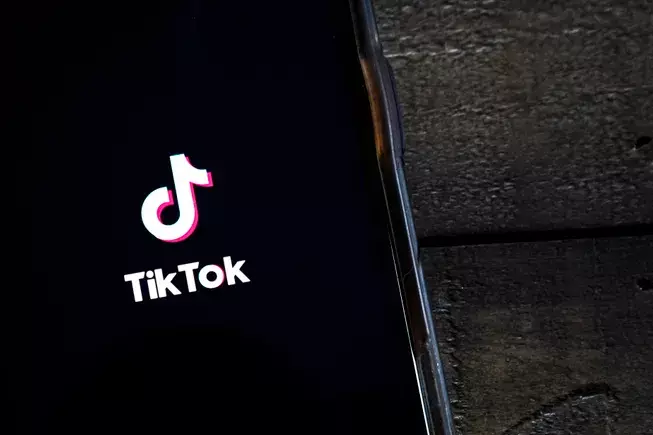TikTok’s status in the United States has taken a dramatic turn as the platform faces the potential for a temporary shutdown due to legislative actions taken by the U.S. government. As of Saturday, notifications were sent to American users, warning that the app could become inaccessible starting midnight, owing to a recently passed bill aimed at regulating foreign applications deemed threats. The circumstances leading to this critical juncture reveal the astonishing interplay of politics, legal maneuvers, and user sentiment surrounding the popular social media app.
The bill, encapsulated within the framework of the “Protecting Americans from Foreign Adversary Controlled Applications Act,” was upheld by the Supreme Court, effectively eliminating any potential legal loopholes TikTok could exploit to remain operational. This ruling places the Chinese-owned app in a precarious position, requiring it to either find an American buyer or cease operations entirely in the United States. Given the tight deadline imposed by the legislation, prospects for a last-minute workaround appear dim, leading to an atmosphere of uncertainty and trepidation.
Interestingly, amidst this turmoil comes a glimmer of hope for TikTok users. Reports emerged that Donald Trump, soon to take on the presidency, is likely to provide a temporary reprieve that would allow TikTok time to negotiate a resolution. Trump’s affection for TikTok—having leveraged it for personal branding during his previous administration—could serve as an essential lifeline for the platform, granting it a stay of execution while he seeks to resolve the contentious issue surrounding its ownership.
It’s important to consider the broader implications of Trump’s forthcoming presidency on the issue. While his administration is stepping in at a tumultuous time, the political landscape reveals a peculiar contradiction. Trump had previously attempted to implement a TikTok ban in 2020, ostensibly driven by national security concerns, particularly in response to the COVID-19 pandemic. However, that initiative failed to bear fruit mainly due to the lack of grounding evidence and legal rationale.
This marks a significant evolution in Trump’s relationship with TikTok—from viewing it as a security risk to potentially positioning himself as its protector. His administration’s decisions regarding TikTok will inevitably be clouded by public scrutiny as people reflect on the motives behind those past actions.
The backdrop of the TikTok saga hinges significantly on issues of national security, particularly fears of data privacy and influence manipulation by foreign entities. The Trump administration’s efforts in 2020, although ultimately unsuccessful, paved the way for ongoing discussions about the app’s risks. Post-Trump, the Biden administration has also been involved in evaluating these security concerns, albeit with intent to restrain the draconian measures associated with outright bans.
While there may have been no conclusive public findings on how Chinese authorities manipulate TikTok, the sustained investigations suggest that Washington harbors valid reservations regarding the app. Accusations of data harvesting and enhancement of pro-China narratives through social media are serious considerations that necessitate careful regulatory oversight.
To this end, the current political establishment is forced to chart a narrow course—balancing user engagement with national security interests. Linked to this is the way forward for TikTok: will it transition neatly into American hands, or will the negotiations hint at deeper complexities between the U.S. and China?
The Future of TikTok: Preparing for a Revised Landscape
Importantly, even as users brace themselves for the impending shutdown, there’s an emerging consensus that a stoppage of operations may only be brief. With Trump’s potential intervention and desire to keep TikTok accessible, it is highly plausible that a resolution is on the horizon. However, the manner in which this resolution unfolds will shape not only TikTok’s future but also the precedent it sets for foreign-owned applications in the U.S.
For marketers and influencers who rely heavily on the app, the signals appear reassuring. They can likely engage with their audience again without overhauling their strategies just yet. The transient closure raises critical questions about the rules governing American digital spaces and the influence of foreign entities, suggesting that, regardless of the immediate outcome, a lasting dialogue is required between policymakers, tech giants, and users alike.
As TikTok currently faces a pivotal chapter, its journey reflects broader discussions about tech, sovereignty, and cross-border interactions, with implications that extend well beyond the app itself.

